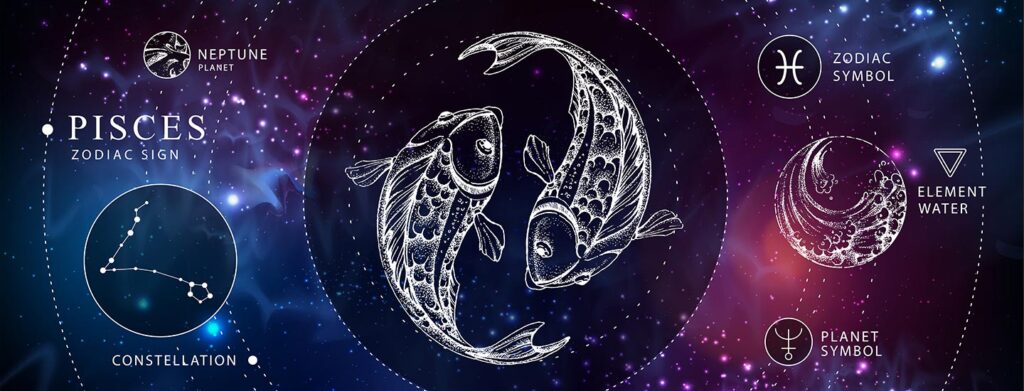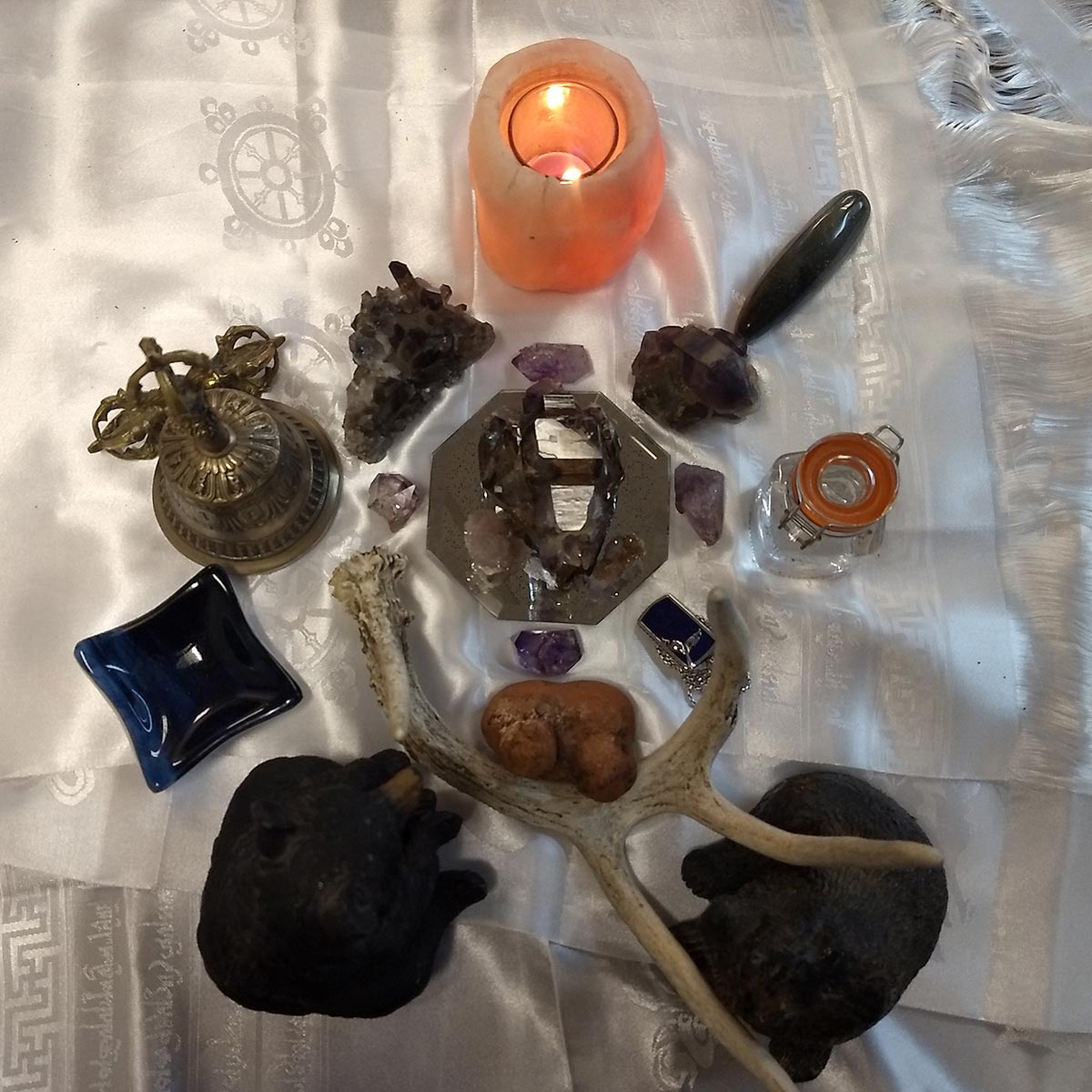As an enthusiast for exploring the unknown and understanding the mysteries of the universe, I have always been fascinated by astrology. I began studying it when I was 18, thoroughly dissecting my chart to get to understand astrology, the planets, signs and houses to try to understand myself. This ancient practice, with its roots in the earliest civilizations, promises to reveal our destinies, strengths, and weaknesses through the positions of celestial bodies. But, like many of you, I questioned whether is astrology fact or fiction? Can it truly describe our individual realities and the world at large?
Contents
Skeptic or Believer
Whether you’re a skeptic, a believer, or somewhere in between, this question warrants a thorough investigation. So, join me as I delve into this fascinating exploration of astrology’s scientific basis, its evolution over the millennia, and its accuracy (or lack thereof). By the end of this discourse, you may well be better equipped to decide if astrology holds water in the realm of reality.
- Accuracy of Astrology: We’ll delve into the evidence (or lack thereof) that supports or debunks the validity of astrology. Is there a correlation between our astrological signs and our personalities, behaviors, or life events? Or are these mere coincidences?
- Scientific Basis of Astrology: This requires a critical look at the scientific principles, if any, underlying astrology. Are there celestial phenomena that influence our lives in the ways astrology suggests? Or is it all based on superstition and pseudoscience?
- Evolution of Astrology: The story of astrology is a long and fascinating one, spanning thousands of years and numerous cultures. How has it changed over the millennia, and how have these changes shaped our understanding of it?
“We are all in the gutter, but some of us are looking at the stars.”
~Oscar Wilde
This quote reflects the essence of our quest: to understand astrology, whether the stars, planets, and other celestial bodies do indeed hold the keys to our personalities and destinies, or if we are merely projecting our hopes, fears, and dreams onto the vast canvas of the night sky. Prepare yourself for a journey that will challenge your perceptions and ignite your curiosity.
The Origins of Astrology: A Brief History
As we delve into the origins of astrology, it’s crucial to understand its antiquity. Astrology, a practice that predates many modern scientific fields and is often referred to as the first science, has its roots firmly planted in early Mesopotamian civilizations, around the 2nd millennium BCE. The Babylonians, who were keen observers of celestial events, are often credited with its inception. They developed an elaborate system for predicting the occurrences based on planetary movements that later cultures (Greek, Roman, and Indian, to name a few) built upon and modified to suit their cosmological frameworks.
In the classical era (circa 600 BCE to 600 CE), astrology and astronomy were intertwined. The Greeks, particularly, had an enormous influence on the development of astrology. Their contribution was the introduction of the horoscopic system, which is the basis for the natal astrology we are familiar with today. This system was predicated on the concept of a celestial sphere, an imaginary sphere with the earth at its center and the stars and planets spread out on its surface.
The Greeks believed that the position and movement of the planets at the time of a person’s birth could potentially impact their character and destiny. This belief is still inherent in modern astrology.
The Middle Ages
Fast forward to the Middle Ages and astrology was still a vital part of academia. In fact, it was taught in universities and was an integral part of the medical curriculum. However, with the advent of the enlightenment period and the rise of empirical science, astrology began to lose its scientific credibility. The emphasis on observational data and the scientific method put astrology under scrutiny, and it was subsequently dismissed as pseudoscience by the scientific community.
In the 20th century, astrology found a new audience in West. With the advent of newspaper horoscopes and the rise of New Age philosophies, astrology morphed into a form of popular psychology. This populist astrology is what most people think of today when they hear the term, but it is a far cry from the complex, intricate system that was developed thousands of years ago.
Therefore, the history of astrology is a fascinating journey, reflecting humanity’s enduring fascination with the cosmos and our place within it. It also highlights our desire to seek patterns and meanings in the natural world, even when such efforts take us beyond the realms of empirical science.
The Science behind Astrology: Astronomy vs Astrology
As a student of both science and philosophy, I have often found myself in the middle of heated debates about astrology. This ancient practice, deeply rooted in human history, straddles the line between science and mysticism, leaving many to question its validity. As we delve into this topic, it’s important to differentiate between astrology and its scientific counterpart, astronomy.
Astronomy vs. Astrology
Astronomy, a widely accepted and studied scientific discipline, concerns itself with the study of celestial objects, space and the physical universe as a whole. It involves precise measurements and thorough observations, all of which are subject to stringent laws of physics. On the other hand, astrology purports to understand and interpret the supposed influence of celestial bodies on human affairs and terrestrial events.
While astronomy relies heavily on scientific principles and empirical evidence, astrology often leans more towards intuitive or subjective interpretations.
So, how did these two fields, seemingly at odds with each other, come to be so intertwined in our understanding of the universe? The answer lies in the history of human exploration of celestial phenomena.
The Evolution: From Astrology to Astronomy
The roots of both astronomy and astrology can be traced back to ancient civilizations. The Babylonians, Greeks, and other early societies used observations of the stars to time their agricultural activities and develop calendars (a practice known as astrometeorology). This gave birth to astrology as a means to predict seasonal shifts and interpret celestial omens. However, as science and technology advanced, our understanding of the universe expanded. The advent of the telescope and better mathematical models gradually shifted the focus from astrology to astronomy.
Despite the progress in scientific understanding, astrology has managed to persist, often appealing to those seeking guidance or answers to life’s big questions. The use of horoscopes, zodiac signs, and planetary alignments has become a popular tool for self-reflection and prediction.
Accuracy of Astrology: A Scientific Perspective
From a scientific standpoint, the accuracy of astrology has been a subject of much debate. Critics argue that there is no empirical evidence to support the claims made by astrologers. The correlation between an individual’s personality traits or life events and the positions of celestial bodies at the time of their birth is often chalked up to coincidence or bias (a phenomenon known as the Forer effect).
Despite these criticisms, many individuals still find personal significance and value in astrological interpretations, highlighting the subjective nature of this practice.
While astrology and astronomy may have shared a common origin, they have diverged greatly over the millennia. The former remains a form of mystical interpretation, while the latter has evolved into a rigorous, evidence-based scientific discipline. As a lover of science, I value empirical evidence, but I recognize that science describes reality, it doesn’t explain it. The question, however, remains: Is astrology fact or fiction? That is a decision best left to you, dear reader.
Astrology through the Ages: How it has Evolved over Millennia
To appreciate the complexities and the broader scope of astrology, it’s essential to journey back through the annals of history and observe its evolution across the ages. From its humble beginnings as a rudimentary system of celestial observation to its current status as a popular pseudoscience, astrology has experienced a profound metamorphosis in theory, practice, and public perception.
The Dawn of Astrology
The genesis of astrology can be traced back to the ancient civilizations of Mesopotamia around the 2nd millennium BC. These early astrologers were primarily concerned with natural disasters and significant events like wars or the reigns of kings (their interpretations were largely catastrophic or highly significant). Astrology, in this time, was less about personal prediction and more about understanding the world’s events.
Roman Influence and the Birth of the Zodiac
Fast forward to the Classical era, where the Greeks and Romans adopted and expanded upon Mesopotamian astrology. Here, astrology began to take on a more personal tone. The concept of the Zodiac was created, a celestial coordinate system that directly correlated the movements of celestial bodies to individual human behavior and destiny. The twelve signs of the zodiac (each associated with specific personality traits) that we know today were born out of this period.
The Middle Ages and Astrology’s Decline
During the Middle Ages, the Church’s rise in power resulted in a significant decline in the acceptance and practice of astrology. It was seen as heretical, a stark contrast to the Church’s teachings. Astrology was cast into the shadows (though it was still practiced in secret by some) until the Renaissance period, where it experienced a slight resurgence thanks to the renewed interest in classical knowledge and philosophy.
Modern Astrology
In the modern era, astrology has experienced a renaissance of sorts. Though it is not considered a legitimate science by the academic community, it’s immensely popular in the public sphere. People turn to astrology for guidance, comfort, and a means to understand their personality and relationships. The birth of the internet and smartphone apps has made astrology more accessible than ever, allowing individuals to check their horoscopes at the click of a button. The focus remains largely personal, with a distinct shift away from predictive astrology to psychological astrology (an attempt to understand one’s self better rather than predicting the future).
Evolution of astrology over the millennia has been a fascinating journey, marked by shifts in focus, acceptance, and purpose. From its beginnings as a tool to predict large-scale events to its current role as a personal guide for self-understanding, astrology has proven to be a resilient and adaptable field.
The Skeptic’s Take: Why Astrology is Considered as Pseudoscience
As someone who actively seeks out the truth behind phenomenon, I find it important to dissect my beliefs and bias to ensure a fair judgment. To do so, it is crucial to approach astrology from a skeptic’s perspective. The skeptics, largely from the scientific community, argue that astrology is pseudoscience. They present their case based on a few key points.
Astrology is not recognized as a legitimate science by the scientific community.
Testability and Verification
For any theory to be scientifically valid, it must be testable and verifiable. Astrology, however, falls short in this regard. It makes assertions about personality traits and life events based on the position of celestial bodies at the time of birth. Yet, these assertions are not always clear-cut and are often vague enough to apply to a wide range of individuals (a phenomenon known as the Forer or Barnum effect). Moreover, there is a lack of empirical evidence that supports the astrological predictions and correlations.
The Precession of the Equinoxes
Another point of contention is the precession of the equinoxes. This is a phenomenon where the Earth’s axial rotation causes a slow shift in the position of the constellations over time. As a result, the signs that are commonly used in astrology today do not correspond to the actual constellations in which the Sun appears. For instance, someone born under the sign of Gemini may, in reality, have had the Sun in the constellation of Taurus at their time of birth. This discrepancy has led many skeptics to question the validity of astrology.
Science or Art?
While astrology has its roots in ancient science, it has evolved into something of an art form. It involves a high degree of interpretation and intuition, which makes it subjective and not easily quantifiable. This stands in stark contrast to the precise measurements and reproducibility required in scientific studies. Many skeptics argue that this subjectivity undermines astrology’s claims to scientific status.
Astrology works on the principle of ‘as above, so below’, but the skeptic’s question is, where is the proof?
While I, as an inquisitive mind, find astrology fascinating, it is important to recognize the skepticism that surrounds it. The scientific community’s concerns about the lack of empirical evidence, the precession of the equinoxes, and the subjectivity involved in astrology are valid. However, the question remains – can a phenomenon be dismissed entirely because it does not fit within the current scientific paradigm? Or perhaps, is there room for alternate ways of understanding ourselves and the universe?
Why do Some People Believe in Astrology While Others Don’t?
When it comes to the controversy surrounding astrology, I’ve observed that opinions are as diverse as the star systems themselves. Astrology, the ancient practice of interpreting the influence of celestial bodies on human affairs, has been a topic of interest and skepticism for centuries. This age-old discipline, with its roots in early civilizations (think Babylonians, Greeks, and Egyptians), has evolved over time, experiencing both periods of widespread acceptance and eras of vehement disbelief.
The heterogeneity in acceptance of astrology, I believe, arises from a variety of factors. Let’s explore some of these below.
Why Some People Believe in Astrology
- Cultural Tradition: For many, acceptance of astrology is a part of their cultural heritage. In societies like India and China, astrology is deeply interwoven into various aspects of life, from marriage to career choices, and is passed down through generations.
- The Desire for Answers: Human beings have an innate need to seek out explanations for life’s mysteries. Astrology, with its intricate system of symbols and interpretations, provides a means to decode the unknown. It offers a sense of order in an often chaotic world.
- Personal Experiences: Individuals who feel that their astrological readings have accurately reflected their personalities or predicted events often develop a strong belief in astrology.
Approximately 25% of Americans believe in astrology.
Why Some People Don’t Believe in Astrology
- Lack of Scientific Evidence: The scientific community has, for the most part, dismissed astrology because it lacks empirical evidence. The mechanisms by which celestial bodies could influence individual lives are not supported by known physical laws.
- The Argument of Vagueness: Skeptics often argue that astrological predictions are vaguely worded and could be interpreted in multiple ways. This ambiguity, they assert, is what makes astrology appear accurate.
- Rationality and Logic: Those who place a high value on rational thought and scientific methodology may reject astrology because it does not fit within their framework of understanding the world.
It is essential to note that the belief or disbelief in astrology is a personal choice, largely influenced by an individual’s experiences, philosophical inclinations, and cultural background.
In my journey of understanding astrology, it’s become clear that the controversy surrounding it is unlikely to dissipate anytime soon. As someone who appreciates both the mystical and the empirical, I find the debate not only intriguing but also enriching. The existence of such diverse perspectives, I believe, contributes to the colorful tapestry of human understanding and interpretation of the cosmos.
If you’re interested in the most common applications of astrology, read “Astrology is Amazing, Wanna Know Why?“
If you’d like a more in-depth look at astrology used in business, read “Better Customers, Wiser Business Growth With Astrology.”
Set up a consultation if you’d like to discuss your own natal chart or business chart.











